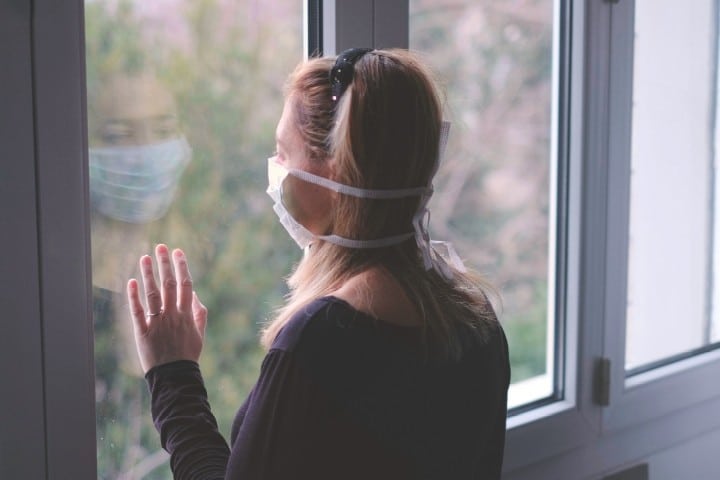Lockdowns Cost More Lives Than They Save

The NewAmerican - by Michael Tennant March 28, 2021
According to many politicians, the past year’s coronavirus lockdowns have been nothing but a boon to humanity. City Journal columnist John Tierney begs to differ: The evidence that lockdowns have prevented COVID-19 deaths is “inconclusive” at best, he avers. “But one effect is clear: more deaths from other causes, especially among the young and middle-aged, minorities, and the less affluent.”
Tierney marshals an array of indisputable evidence to bolster his contentions. He is especially interested in whether the lockdowns led to an increase or decrease in excess mortality, the number of deaths in one year that one would not expect based on trends in previous years. “That measure rose among older Americans because of Covid-19,” he notes, “but it rose at an even sharper rate among people aged 15 to 54, and most of those excess deaths were not attributed to the virus.”
There are a variety of reasons for this, most of which can be traced directly to lockdowns. Many people either were too frightened or were unable to obtain treatment for serious health issues. “The reported levels of anxiety, depression, and suicidal thoughts increased dramatically, as did alcohol sales and fatal drug overdoses,” writes Tierney. Meanwhile, motor-vehicle accident fatalities went through the roof despite Americans’ staying home much more, probably because of increased substance abuse and reckless driving on empty roads.
As is often the case with government policies, the very people politicians claim to be helping are suffering the most. “The number of excess deaths not involving Covid-19 has been especially high in U.S. counties with more low-income households and minority residents, who were disproportionately affected by lockdowns,” pens Tierney. And their problems aren’t over: Researchers expect the United States to experience more than a million excess deaths over the next two decades because of unemployment’s lasting effects.
Don’t expect government to solve the problems it created, either. In fact, federal stimulus checks, aimed at offsetting the economic effects of the lockdowns, are actually causing an increase in drug overdoses, county officials in several states recently told Fox News.
While lockdown proponents might be willing to concede that their preferred policy cost some lives, they would likely argue that lockdowns saved many more. Tierney demolishes that contention: “By comparing regions and countries, researchers have found that trends in infections were similar regardless of whether there were mandated business closures or stay-at-home-orders.”
Domestically, California and Florida have provided significant evidence that government mitigation efforts are useless in combating COVID-19 but very effective in generating unemployment. California, with an unemployment rate nearly double that of Florida, has been under a strict lockdown for a year, while Florida has been wide open for most of that time, yet the two states differ very little when it comes to COVID-19 case and death rates. However, when it comes to excess mortality, California’s “is well above the national average,” while Florida’s “is below the national average and significantly below California’s, especially among younger adults,” Tierney observes.
International comparisons don’t do lockdown proponents any favors, either. Sweden, for example, did not impose nationwide lockdowns and mask mandates, yet “by any measure of excess mortality, Sweden has fared much better than countries with especially strict lockdowns and mask mandates,” writes Tierney. Its neighbors, Norway and Finland, did impose some stricter measures last spring but reopened quickly. The results:
The three Nordic countries have all done much better than the United States in preventing excess deaths, and there’s one especially troubling difference: the rate of excess mortality among younger people. That rate soared last year among Americans in lockdown, but not among the Swedes, Norwegians, and Finns, who kept going to school, working, and socializing without masks during the pandemic. In fact, among people aged 15 to 64 in each of the Nordic countries, there have been fewer deaths than normal since the pandemic began.
The “needless deaths,” especially among the young, “are the greatest scandal of the pandemic,” declares Tierney. He excoriates “public-health officials” for “test[ing] unproven and dangerous treatments by conducting experiments on entire populations.” They “ignored analyses showing that, even if the lockdowns worked as advertised, they would still cost more years of life than they saved.” And, in many cases, they keep right on trucking despite the long-ago discrediting of their initial justifications for lockdowns.
“If a corporation behaved this way, continuing knowingly to sell an unproven drug or medical treatment with fatal side effects, its executives would be facing lawsuits, bankruptcy, and criminal charges. But the lockdown proponents are recklessly staying the course, still insisting that lockdowns work,” concludes Tierney. “The burden of proof rests with those imposing such a dangerous policy, and they haven’t met it. There’s still no proof that lockdowns save any lives — let alone enough to compensate for the lives they end.”
COPYRIGHTS
Copy & Paste lenken øverst for Yandex oversettelse til Norsk.
WHO and WHAT is behind it all ? : >
The bottom line is for the people to regain their original, moral principles, which have intentionally been watered out over the past generations by our press, TV, and other media owned by the Illuminati/Bilderberger Group, corrupting our morals by making misbehaviour acceptable to our society. Only in this way shall we conquer this oncoming wave of evil.
Commentary:
Administrator
HUMAN SYNTHESIS
All articles contained in Human-Synthesis are freely available and collected from the Internet. The interpretation of the contents is left to the readers and do not necessarily represent the views of the Administrator. Disclaimer: The contents of this article are of sole responsibility of the author(s). Human-Synthesis will not be responsible for any inaccurate or incorrect statement in this article. Human-Synthesis grants permission to cross-post original Human-Synthesis articles on community internet sites as long as the text & title are not modified.